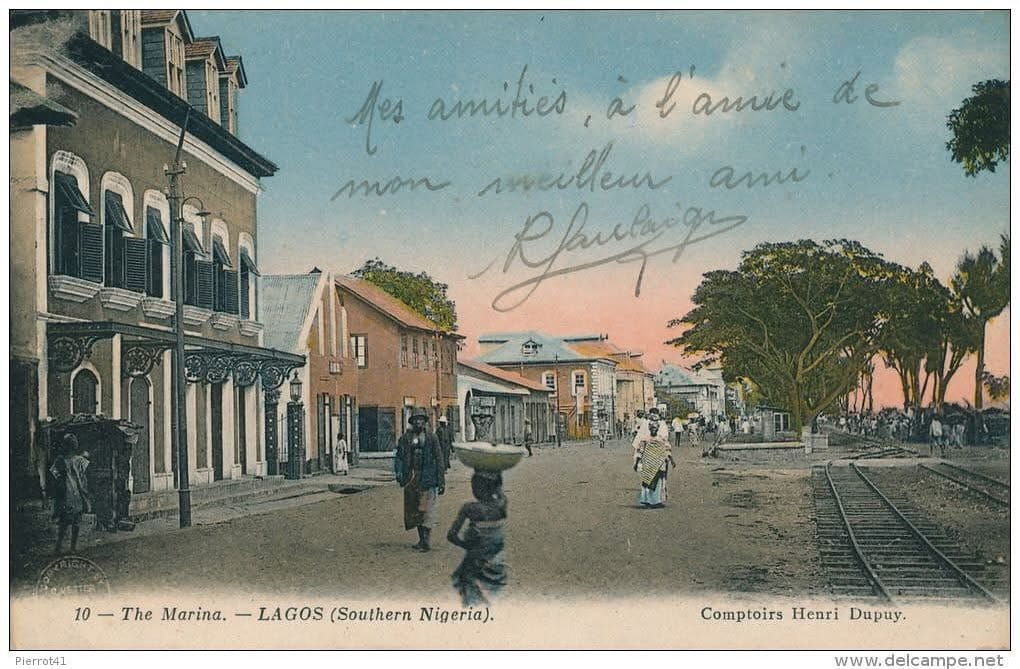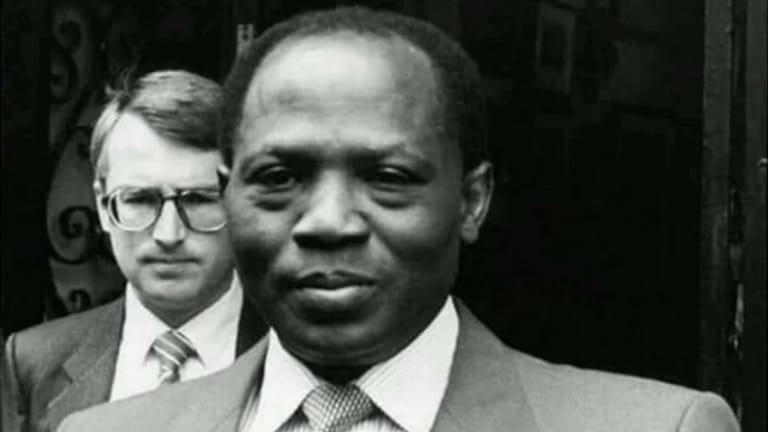- SimplVest Newsletter
- Posts
- Renditions, Railways and Revival
Renditions, Railways and Revival
Buhari, and the last of Nigeria's colonial heritage that is still standing, but on one leg.


Happy weekend,
Last Saturday, we jumped on the Buhari trend and gave our own take. Google sent the newsletter to Promotions and a lot of people never got to read it.
To give a summary, the perception of Buhari was of a ‘no-nonsense’, austere, disciplined and incorruptible soldier. When corruption scandals and economic mismanagement brought down Shehu Shagari's civilian government, his fellow senior officers cleared the way for him to go and clean up a corrupt government.
But this image as a reformer, was mostly a myth. Buhari’s military government was authoritarian, repressive and ultimately failed to deliver the promised transformation. And while he flogged and threw people into prison left and right, the country slipped into a recession. By 1985, his own military colleagues had grown tired of his heavy-handed approach and they quietly ousted him in another coup.
Yet somehow, three decades later, this same mythical figure would resurface. In 2014, as Nigeria again faced economic crisis and rampant corruption under Goodluck Jonathan, the Buhari myth proved irresistible once more. On both occasions, Nigerians bought into a carefully constructed narrative. Both times, they were left with a country more divided, more polarized and arguably more corrupt than before.
The story we shared might as well have happened in Kenya, instead of London and featured Nnamdi Kanu instead of Umaru Dikko. But it reveals everything about Buhari's true character: the lengths he would go to silence opposition, the international conspiracies he was willing to orchestrate, and his remarkable ability to emerge from controversies with his reputation somehow intact, thanks to this myth.
ICYMI, we invite you to read the definitive event in the history of Buhari’s first regime.
To new business.
In the past, we’ve shared stories of how sights that marked the earlier progress of Nigeria, slowly disappeared or fell into disrepair. There were the groundnut pyramids of Northern Nigeria, the cocoa fields of Western Nigeria that built West Africa’s first skyscraper, the rubber plantation, the textile mills and the palm oil plantations of Eastern Nigeria.
Today, we add to the list, Nigeria’s railway system. We trace its history from when the British built it to haul all the agricultural products grown in the far north to the seaports at Lagos and Port Harcourt, to how soon it was left to decay after independence and the attempts at reviving it.
To be fair, the textile industry and the railway system both saw concerted efforts at their revitalization by successive governments, which has allowed it to rise from the dead. But while the textile industry is nearly dead, the railway is still alive though walking on one leg.
Yet, unlike the others, the railway system is a peculiar case, it isn’t entirely beyond saving. We explain why this is so and what the experts are saying about how it can be fully resuscitated and the potential impact it can have on Nigeria’s economy.
We also shared budgeting tips as well as a breakdown of the new tax laws for small businesses in Nigeria.
We wish you the best of the weekend.
The SimplVest Team
How Nigeria’s Railway System Collapsed

Nigeria’s railway system is one of too many tragic tales of promise unfulfilled, dreams deferred and opportunities squandered that litter Nigeria’s history.
What began as an ambitious colonial infrastructure project has since devolved into a permanent symbol of institutional failure, corruption and mismanagement that continues to plague Nigeria over a century later.
👉 Full Story here: How Nigeria’s Railway System Collapsed
ICYMI: Umaru Dikko: The Story of the Most Wanted Man In Nigeria’s History

This is the story of how Nigeria’s most wanted man became the target of an extraordinary international manhunt during Buhari’s military regime, that would strain diplomatic relations between Nigeria and the UK.
👉 Full Story here: Umaru Dikko: The Story of the Most Wanted Man In Nigeria’s History
Smart Budgeting Strategies Recommended by Psychology

Most people are aware of the necessity of budgeting as a healthy money habit. Yet, almost no one ever does it for various reasons. We spoke to two Lagos professionals who allowed us a glimpse of their books.
Through the lens of behavioural psychology, their stories offer powerful lessons about why we make the financial decisions we do. As well as budgeting strategies that can help them and anyone with their financial profile, do better.
👉 Full Story here: Smart Budgeting Strategies Recommended by Psychology
Nigeria’s New Tax Laws for Small Businesses

Nigeria’s new tax laws have officially arrived, and they’re changing everything for small business owners. The Nigeria Tax Act, 2025 provides a single, comprehensive legal framework that applies not only to multinational corporations but also to local tailors, shop owners, food vendors, consultants and start-ups.
Here’s a breakdown.
👉 Full Story here: Nigeria’s New Tax Laws for Small Businesses
Till Next Saturday,
If you loved what you read, be sure to forward it to a friend. If you have any thoughts, you can leave us a comment by replying to this mail. We would love to hear back from you.